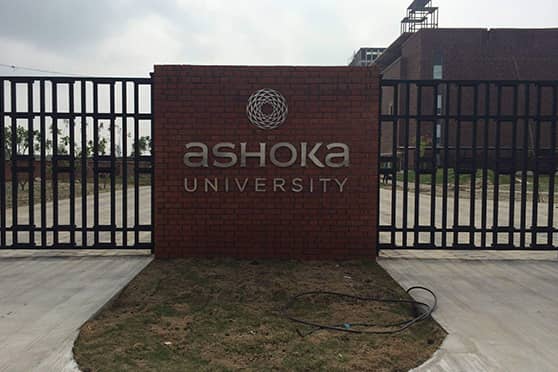Concern over the erosion of academic freedom has been expressed after it emerged that Sabyasachi Das, who authored a working paper on possible electoral manipulation by “the incumbent party” in 2019, had quit his job as assistant professor of economics at Ashoka University in Haryana’s Sonepat.
Jayati Ghosh, professor of economics at the University of Massachusetts Amherst, posted: “I’m truly shocked at the lack of solidarity displayed by senior faculty of @AshokaUniv.”
“They have so little to lose from defending basic academic freedom. Silence enables injustice, and it spreads,” Ghosh added.
She tagged three professors of Ashoka’s economics department, including its head Ashwini Deshpande, in an X (formerly Twitter) post sharing a news report on The Wire portal on the resignation.
Deshpande responded: “Amazing how people are making assumptions about our ‘lack of solidarity’ without knowing anything about what we have been up to the last 15 days. If issuing statements alone could solve crises, we would be in a different world.”
Neither Deshpande nor vice-chancellor Somak Raychaudhury responded to emails from The Telegraph. An email to Das was also unanswered when this report was filed on Monday evening.
However, a senior professor at the varsity said Das had resigned.
The senior professor told this newspaper: “No doubt, this is the consequence of the statement by the university distancing itself from him. When Pratap Bhanu Mehta and others quit, it was on points of personal expression. This is the first time that something like this is happening regarding research. It is a clear infringement of academic freedom, which is very worrying.”
The varsity had said in a statement on Das’s paper on August 1: “To the best of our knowledge, the paper in question has not yet completed a critical review process and has not been published in an academic journal. Social media activity or public activism by Ashoka faculty, students or staff in their individual capacity does not reflect the stand of the University.”
The professor who spoke to this newspaper added: “The official line is that attempts are being made to dissuade him. However, it is the administration that has created the conditions for his departure…. His resignation, or Mehta’s earlier, gives deniability to the university of causing them to leave. It is clear that although we are free to work on any topic, should a controversy arise from our work, the university is not going to have our back and can actually push us under the bus. It is very difficult to work here now.”
The Edict, a news outlet run by Ashoka students, said on Monday: “Das’s resignation calls back to a markedly similar situation from two years ago, when Ashoka University’s ex-Vice Chancellor Pratap Bhanu Mehta was seemingly coerced into resigning from the university due to his frequent criticism of the incumbent Union government in his writings for The Indian Express.”
Das’s unpublished paper — “Democratic Backsliding in the World’s Largest Democracy” — uses mathematical tests to imply that “the incumbent party in 2019 won a disproportionate share of closely contested elections”.
Disclaimers in Das’s paper — presented at the National Bureau of Economic Research in the US last month — include that these wins would not have changed the overall result of the Lok Sabha polls, and that these tests were not proof of fraud.
However, several academics and Congress leaders shared the paper — available on a research archive website — and related tweets to vindicate their suspicions about the election process. The BJP slammed the paper and one of its MPs referred to the author as an “anti-national element”.
Psephologist and activist Yogendra Yadav wrote on X on Monday: “An advertisement for academic freedom in India, on the eve of Independence Day!”










